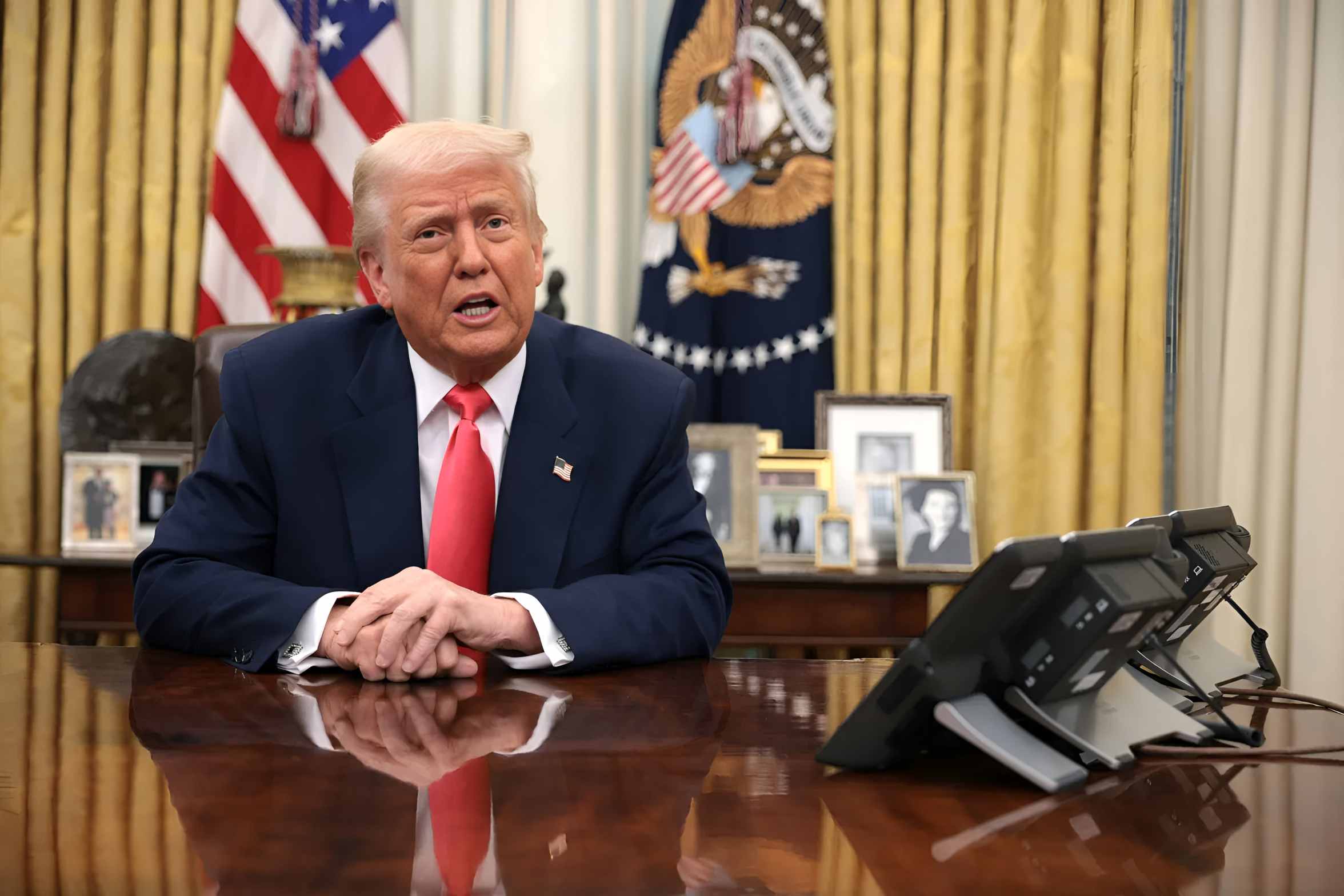President Donald Trump has signed an executive order that enforces a complete travel ban on citizens from 12 countries and places travel restrictions on seven additional nations, according to the White House.
The countries affected by the full ban are Afghanistan, Chad, Congo, Equatorial Guinea, Eritrea, Haiti, Iran, Libya, Myanmar, Somalia, Sudan, and Yemen.
Alongside the travel ban announced Wednesday, the administration will impose stricter entry measures on citizens from Burundi, Cuba, Laos, Sierra Leone, Togo, Turkmenistan, and Venezuela.
"I am compelled to act to safeguard the national security and interests of the United States and its citizens," Trump stated in the executive order.
The order takes effect on Monday, June 9, 2025, starting at 12:01 a.m. Washington, D.C. time (04:01 GMT). Visas issued prior to that time will remain valid, according to the directive.
In a video released by the White House, Trump cited the recent attack at a pro-Israel rally in Boulder, Colorado, as evidence of the serious risks posed by allowing foreign nationals who have not undergone thorough vetting to enter the country.
The president asserted that "millions of undocumented individuals" are currently in the U.S. illegally.
He emphasized, "We will not allow America to experience what Europe has faced," adding, "Simply put, we cannot permit open migration from countries where it’s impossible to properly and reliably vet those seeking entry into the United States."
"We will not admit those who intend to harm our nation."
In his first term back in 2017, President Trump signed an executive order that blocked travel to the United States from seven mainly Muslim-majority countries: Iran, Iraq, Libya, Somalia, Sudan, Syria, and Yemen.
Citizens from these countries were either prevented from boarding flights to the US or detained upon arrival at American airports.
Those affected included tourists, visitors to family and friends, students and university staff, as well as business travelers.
Often called the "Muslim ban" or "travel ban," the order underwent several revisions following legal challenges.
Eventually, the Supreme Court upheld a version in 2018 that restricted certain categories of travelers and immigrants from Iran, Somalia, Yemen, Syria, Libya, as well as North Korean nationals and some Venezuelan government officials and their families.
Trump defended the original ban as a necessary national security measure, insisting it was designed to protect the country and was not targeted against Muslims.
However, during his initial presidential campaign, Trump had explicitly called for a ban on Muslim immigration.
On Wednesday, President Trump signed an executive order suspending the entry of foreign nationals seeking to study or participate in programs at Harvard University, accusing the prestigious institution of having “a history of concerning foreign ties and radicalism.”
The order instructs the US State Department to “consider revoking” existing academic or exchange visas for current Harvard students who fall under the proclamation’s criteria.
Last month, according to an internal cable obtained by Reuters, the State Department directed its consular offices worldwide to increase scrutiny of visa applicants intending to attend Harvard for any reason.
Harvard has accused the administration of retaliating against the university for resisting Trump’s demands to control its governance, curriculum, and the ideological leanings of its faculty and students.
These visa restrictions follow earlier actions, including freezing billions in grants and funding to Harvard, stripping the university’s tax-exempt status, and launching an investigation into alleged discrimination against white, Asian, male, or heterosexual employees and applicants.
Last month, the administration also attempted to block Harvard from enrolling foreign students, but that effort was halted by a federal court in Boston.
Trump’s new order, however, relies on a different legal authority, according to the Associated Press.

